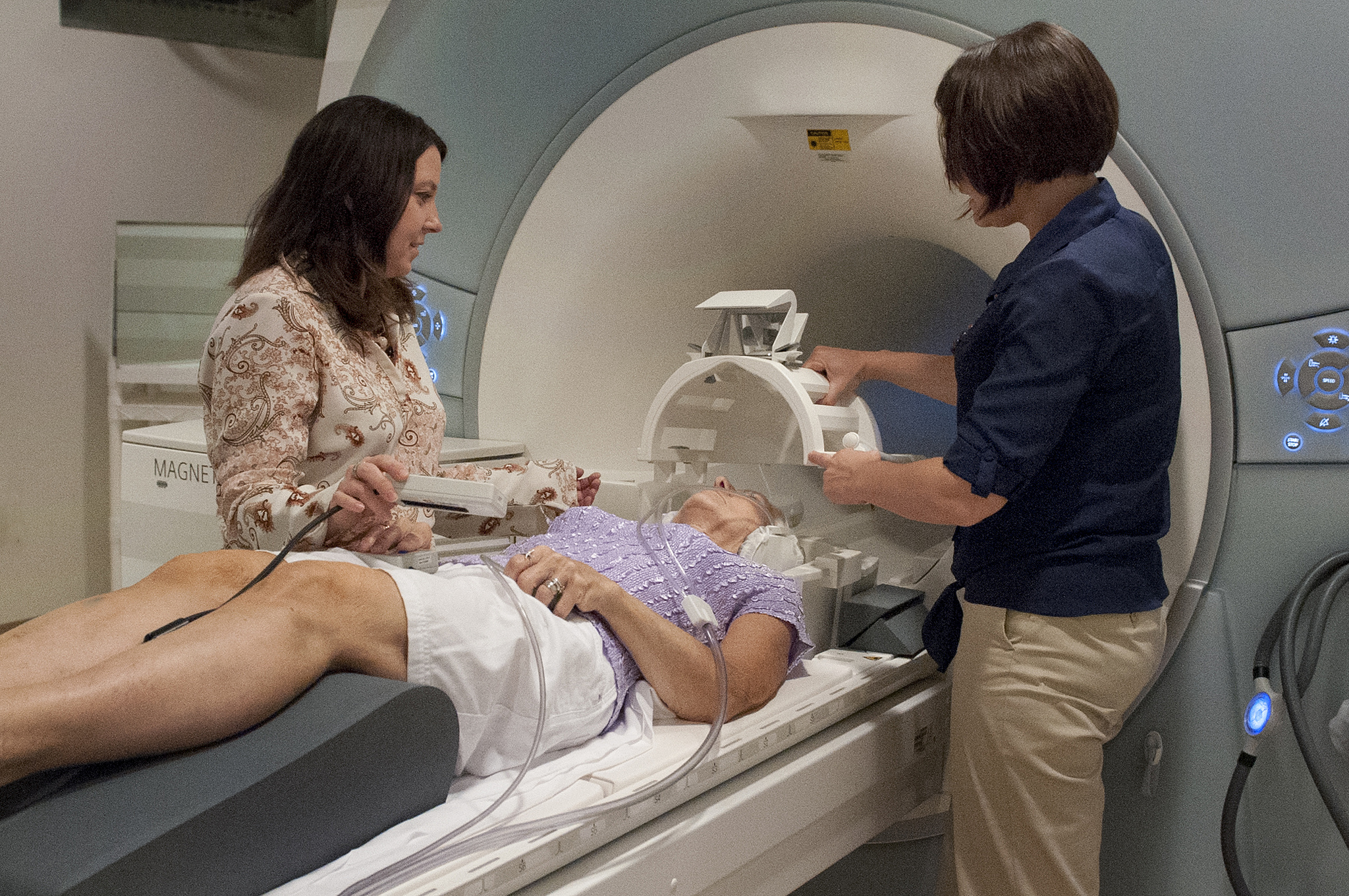When cavities can’t be fixed with a typical filling, covering the tooth with a dental crown is often the next step. Crowns can be made from a variety of materials including metal, ceramic, porcelain, porcelain fused to metal, or resin. Cost often drives the choice of materials. Patients who choose metal crowns sometimes have concerns later on—In particular, they may worry about the interaction of dental crowns and MRI.
In recent decades, MRI, or magnetic resonance imaging, has become a common medical diagnostic imaging tool. Since it uses powerful magnetic fields to create images of the inside of the body, there have been concerns about the safety of metal objects like fillings, implants, and crowns in patients’ mouths. A few different factors determine if dental crowns and MRI are a bad combination.
Watch our short video on MRI and dental crowns, or scroll on to read more about these specific safety concerns.
Materials Matter for Dental Crown
Magnets only attract certain types of metals, so only those are a concern with MRI. These are called ferromagnetic metals and include iron, cobalt, nickel, and alloys like stainless steel. Some dental restorations, like dental crowns, may include traces of these metals.
Crowns made of porcelain, composite resin, or gold pose no risks from MRI. If a patient has a crown made with metal, or of porcelain fused to metal, they should consult their dentist before getting an MRI. The age of a crown may be a clue to the material used. More recent crowns typically use products that do not interfere with MRI machines.
The Dangers of Dental Crowns and MRI
Metal crowns and other dental products such as implants and braces can impact MRI procedures in two important ways: Safety and effectiveness.
Projectile Accidents
Projectile accidents with dental crowns and MRI are by far the most frightening. Luckily, they are also the least common.
Here’s a little-known fact: Objects like oxygen tanks, IV poles, stretchers, and wheelchairs aren’t allowed in the room with an MRI machine. That’s because the magnet in the machine is powerful enough to pull them in at high speeds. For the same reason, patients must remove all metal jewelry. If a dental crown contains magnetic material, there is a chance that it could literally be pulled off the tooth. Obviously, this can be painful and dangerous for a patient undergoing an MRI.
Crown Dislodgement
Even if a crown is not pulled out, it can still be damaged. The strong magnetic field of the MRI machine can interact with the metal, causing it to vibrate. This vibration can move, bend, or break dental restorations.
Thermal Burns
Even if a certain metal isn’t attracted to a magnet, it can still pose a danger. Some metals absorb the energy created by the magnetic field. This energy can heat the metal enough to cause burns on the surrounding tissue in the mouth.
Artifacts
While not dangerous to the patient, “artifacts” can be problematic when dental crowns and MRI interact. Artifacts are the term used when metal distorts or obscures the image produced by the MRI machine. They may show up as blurry areas or dark smudges on the image. The lack of a clear image can make it difficult, if not impossible, to make a medical diagnosis.
Avoiding Problems with Dental Crowns and MRI
It’s impossible to predict whether an MRI may be needed at some future date. There are some things patients can do, however, to avoid potential issues if and when a doctor recommends an MRI.
- Keep track of dental procedures and consult with the dentist about what materials were used.
- Choose ceramic, porcelain, or composite materials for future dental work.
- Communicate with the doctor and MRI technician about any dental work that could cause concern.
If a patient has metal dental crowns their doctor may need to find an alternative to an MRI for them. If there is any doubt about the materials of dental work, technicians will always err on the side of caution and not do the procedure.
MRI is a powerful and essential tool in the world of medical diagnosis. Knowing the facts about your dental work is the best way to ensure an MRI will be safe and effective, should you ever need one.


